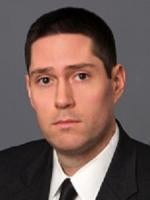The Consumer and Governmental Affairs Bureau of the Federal Communications Commission (the “FCC”) recently issued a public notice seeking comment on issues related to interpretation and implementation of the Telephone Consumer Protection Act (the “TCPA”). The notice followed the recent decision of the United States Court of Appeals for the District of Columbia in ACA International v. FCC, in which the Circuit Court affirmed and vacated in part a rule previously issued by the FCC. Our prior coverage of ACA International can be found here.
First, the FCC seeks comment on the TCPA definition of “automatic telephone dialing system.” The TCPA defines an automatic telephone dialing system as “equipment which has the capacity—(A) to store or produce telephone numbers to be called, using a random or sequential number generator; and (B) to dial such numbers.” The FCC had previously interpreted the term “capacity” to include a device “even if, for example, it requires the addition of software to actually perform the functions described in the definition.” The ACA International Court set that definition aside—finding that the agency’s “capacious understanding of a device’s ‘capacity’ lies considerably beyond the agency’s zone of delegated authority” and that it would have “the apparent effect of embracing any and all smartphones.” The FCC seeks comment on how to interpret “capacity” in light of the guidance provided in ACA International, specifically seeking comment on how to more narrowly interpret the word “capacity” to better comport with congressional findings and the intended reach of the statute.
The FCC further seeks comment on the functions a device must be able to perform to qualify as an automatic telephone dialing system. The FCC seeks comment on whether equipment can be considered an automatic telephone dialing system if the equipment cannot itself dial random or sequential numbers. And the FCC seeks comment on whether the prohibition on making certain calls using an automatic telephone dialing system should apply to equipment that has the ability to use such technology but does not actually use it in making the call.
Second, the FCC seeks comment on how to treat calls to reassigned wireless numbers under the TCPA where the statute carves out calls “made with the prior express consent of the called party” from its prohibitions. The FCC seeks comment specifically on the definition of “called party:” does it refer to the person the caller expected to reach (or reasonably expected to reach) or the person that the caller actually reached, i.e., the wireless number’s present-day subscriber? Further, does it include the “customary user” (e.g., the close relative on a subscriber’s family calling plan)?
Third, the FCC seeks comment on how a called party may revoke prior express consent to receive robocalls. The ACA International Court found that (1) “a party may revoke her consent through any reasonable means clearly expressing a desire to receive no further messages from the caller,” and (2) such a standard means “callers . . . have no need to train every retail employee on the finer points of revocation” and have “every incentive to avoid TCPA liability by making available clearly-defined and easy-to-use opt-out methods.” The FCC now seeks input on what, if any, opt-out methods exist that would be sufficiently clearly defined and easy to use such that “any effort to sidestep the available methods in favor of idiosyncratic or imaginative revocation requests might well be seen as unreasonable” for unwanted calls (i.e., saying “stop calling” in response to a live caller, offering opt-out through a website, or responding with “stop” to unwanted texts; and whether callers must offer all or some combination of such methods to qualify).
Fourth, the FCC seeks renewed comment on two pending petitions for reconsideration of the FCC’s Broadnet Declaratory Ruling, in which the FCC determined that the TCPA does not apply to calls made by or on behalf of the federal government in the conduct of official government business, except when a call made by a contractor does not comply with the government’s instructions. The petitions seek reconsideration of the FCC’s interpretation of “persons” under the TCPA, and clarification of whether federal government contractors, regardless of their status as common-law agents, are “persons” under the TCPA. The FCC now seeks comment on whether contractors acting on behalf of federal, state, and local governments are “persons” for purposes of the TCPA.
Fifth, the FCC seeks renewed comment on the pending petition for reconsideration of its 2016 Federal Debt Collection Rules, which seeks reconsideration of several aspects of the rules, including the applicability of the TCPA limits on calls to reassigned wireless numbers. Referring to the holding in ACA International, the FCC seeks renewed comment on “this and other issues” raised by the petition.
Comments are due by June 13, 2018 and reply comments are due by June 28, 2018.
This public notice, along with recent congressional hearings considering legislation applicable to telephone calls (previously discussed here), demonstrates that in the wake of ACA International, the laws and regulations applicable to outbound calling will continue to evolve.








 />i
/>i
